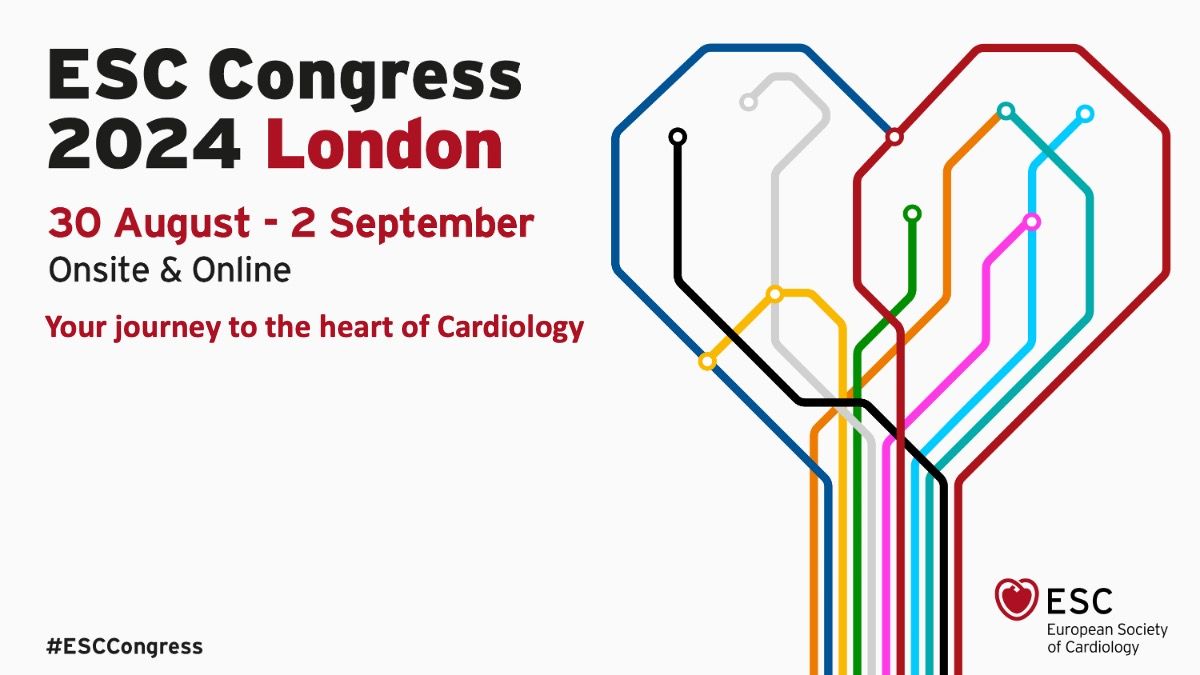- Center on Health Equity & Access
- Clinical
- Health Care Cost
- Health Care Delivery
- Insurance
- Policy
- Technology
- Value-Based Care
ICYMI: Highlights From ESC Congress 2024
Top coverage from the 2024 European Society of Cardiology (ESC) Congress focused on screening, treatment, and equity in cardiovascular care.
The 2024 European Society of Cardiology (ESC) Congress showcased groundbreaking research on cardiovascular care, covering innovative approaches to screening, treatment, and equity. Key topics included advanced imaging for heart disease detection, lipid-lowering therapies beyond statins, health equity initiatives, and the potential of semaglutide for improving outcomes in heart failure with preserved ejection fraction (HFpEF).
Here are the highlights from the 2024 ESC Congress. You can check out more of our coverage and interviews from the meeting by clicking here.
5. Traditional Screening May Overlook Patients at Risk of Acute Coronary Syndrome
A study presented by Anna Mueller, MD, and Amir Ahmadi, MD, of Mount Sinai, highlighted significant shortcomings in traditional screening methods for acute coronary syndrome (ACS). Retrospective data from 166 patients younger than 65 years revealed that 51% of individuals who experienced their first ACS event were classified as low or borderline risk using the Atherosclerotic Cardiovascular Disease (ASCVD) Risk Score. Additionally, over half of the patients showed no symptoms until less than 48 hours before their event, with some having no symptoms. In this interview, Mueller and Ahmadi explain how plaque detection through advanced imaging could improve early risk identification, emphasizing the need for enhanced screening tools beyond symptoms and risk scores to prevent heart attacks effectively.
4. Lipid-Lowering Therapies Beyond Statins: ESC 2024
A trio of studies explored advanced lipid-lowering therapies for patients unable to achieve optimal low-density lipoprotein (LDL) cholesterol levels with statins alone. In one study, bempedoic acid demonstrated significant reductions in major adverse cardiovascular events, primarily through lowering nonfatal myocardial infarctions, but did not affect all-cause mortality. Another meta-analysis showed that combining statins with ezetimibe, PCSK9 inhibitors, or bempedoic acid reduced cardiovascular events and ischemic strokes without improving overall mortality. A third study highlighted gaps in real-world implementation of lipid guidelines in the United Kingdom, revealing that most high-risk patients failed to achieve LDL targets or receive appropriate combination therapies.
3. New Data Suggest Screening Heart Disease by Identifying Plaque, Not Just Risk
Image credit: ESC

Findings suggest a paradigm shift in heart disease screening, moving away from ASCVD scores and towards detecting coronary plaque. In one study, nearly 40% of patients presenting with ACS were classified as low risk and would have been missed by symptom-based assessments. Continuing the discussion, Mueller and Ahmadi advocated for advanced imaging techniques, such as CT scans, to identify subclinical coronary disease earlier, likening the approach to cancer screening.
2. Advancing Health Equity in Cardiovascular Care: A New Frontier
David Thompson, PhD, professor of nursing, School of Nursing and Midwifery, Queen’s University Belfast, emphasized the urgent need to address inequities in cardiovascular care by going beyond traditional notions of health equality. At the meeting, he highlighted how social determinants of health like income, education, and social support, often outweigh health care access and lifestyle factors in influencing cardiovascular outcomes. Thompson called for a systemic shift toward equitable care that considers barriers like cultural biases, geographic inaccessibility, and inadequate infrastructure, and proposed solutions such as empowering patients through digital health tools and diversifying the health care workforce.
1. Semaglutide Enhances Heart Failure Outcomes in Obesity
Updated findings from the STEP-HFpEF program highlighted the potential of semaglutide to improve outcomes in patients with obesity-related HFpEF. Subanalyses revealed significant benefits in symptom management, exercise capacity, and biomarkers like C-reactive protein (CRP) and NTproBNP. These benefits were particularly seen in patients with atrial fibrillation, who showed greater improvements in quality-of-life scores and functional metrics such as the 6-minute walk distance. Reductions in inflammation appeared independent of baseline CRP levels or weight loss magnitude.
